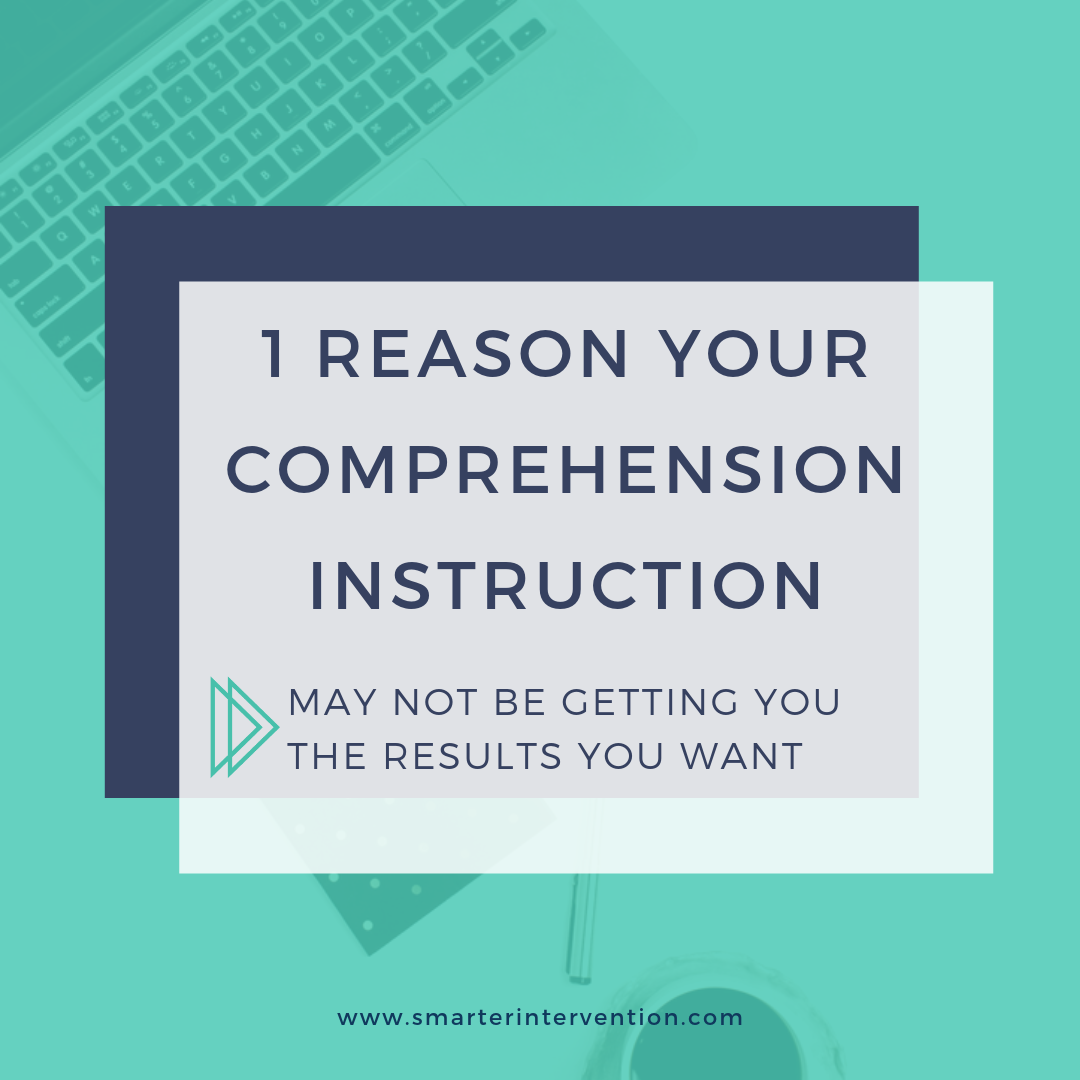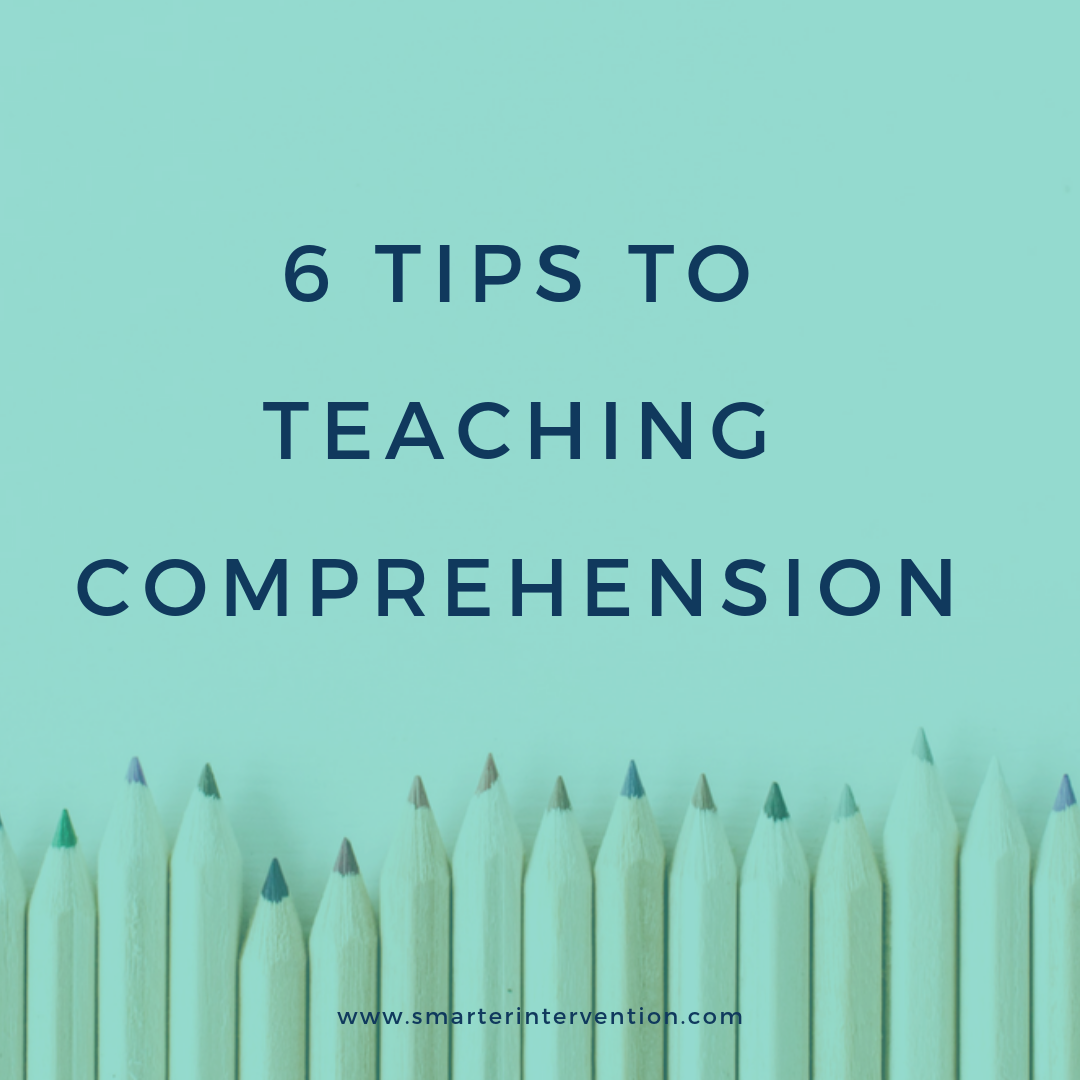Science-based literacy resources and articles
for families, educators and schools
Search by Category:
Categories
- Advocacy
- Authentic Literature
- Business
- Comprehension
- Data Tracking
- Differentiation
- Dyslexia
- Evaluation and Assessment
- Executive Functioning
- Games & Activities
- Helping My Child At Home
- How To
- IEP/504 Plan
- Lesson Planning
- Math
- Online Intervention
- Organization
- Parents
- Phonics
- Phonological Awareness
- Reading Comprehension
- Reading Fluency
- Research
- SLP
- Spelling
- Vocabulary
- Writing
How to Teach Comprehension Explicitly
You can't teach comprehension explicitly.
...at least, that's what we were told when we started in this field.
After working with hundreds of students, we realized that comprehension can and should be taught explicitly.
...and that teaching it doesn't need to be as hard as we once believed. It just relies on us recognizing one important detail before we jump in. Click here to read more!
How to Use SOR to Support Students Who Struggle with Word Recognition & Comprehension
We’re so glad you’re here. Now over the last month, we’ve been talking all about how to use the Science of Reading and effective reading instruction strategies to support students with varying needs. We’ve talked about supporting students who are reading on grade level, supporting students who struggle with decoding and word recognition, we’ve talked about supporting students who struggle with comprehension, and today we’re going to talk about our last group of students, students who struggle with word recognition and comprehension. Click through to learn more!
What Students Need for Effective Comprehension & Writing in the Classroom
Today, we’re diving right into a pretty loaded topic! We wanted to start the conversation around what students need in order to effectively comprehend lessons in the classroom and what they need to be able to write effectively to demonstrate their knowledge.
Now obviously, this isn’t something we can fully communicate/solve in a single blog post. But … we do have a really good starting point! And, don’t worry, we also have some really good follow-up coming your way!
Reading Comprehension: Finding the Main Idea, Details, and Summarizing
Just because a student’s decoding becomes more accurate and their fluency (reading speed & accuracy combined) improves does not mean that the child will magically understand everything they are reading. Read on to see how you can support reading comprehension skills for your students.
Explicit Instruction of Comprehension Strategies for Struggling Readers By Joan Sedita
There are a variety of reasons why students struggle to develop reading and writing skills, and many of these students need explicit instruction in foundational skills such as phonics for decoding and spelling, automatic fluent reading skills, and basic text structures.
1 Reason Your Comprehension Instruction May Not Be Getting You The Results You Want
Unlock the secrets to effective comprehension instruction! Learn how to craft measurable goals that go beyond personal connections and questioning to truly enhance students' understanding of text. Explore practical strategies like using graphic organizers and precise measurement tools to foster deeper comprehension skills.
5 Tips for Comprehending Nonfiction Text
Discover concrete strategies for improving nonfiction comprehension in older students, especially those with dyslexia. Learn how to navigate dense texts, decode information, and use text features effectively. Empower students to read to learn and gather information with confidence!
6 Tips to Teaching Comprehension
Discover six explicit strategies for teaching comprehension effectively to struggling readers. From creating mental movies to predicting outcomes, explore concrete methods to enhance understanding. Learn how to scaffold comprehension skills and foster metacognition for lasting comprehension success!
5 Questions to Ask in Every Read Aloud!
Explore effective comprehension strategies for beginner readers. Learn how to engage young learners with interactive reading using authentic literature. Discover key questions to enhance comprehension skills: What, Why, How, Predictions, and Moral of the Story. Foster early metacognitive skills and promote a love for reading!










